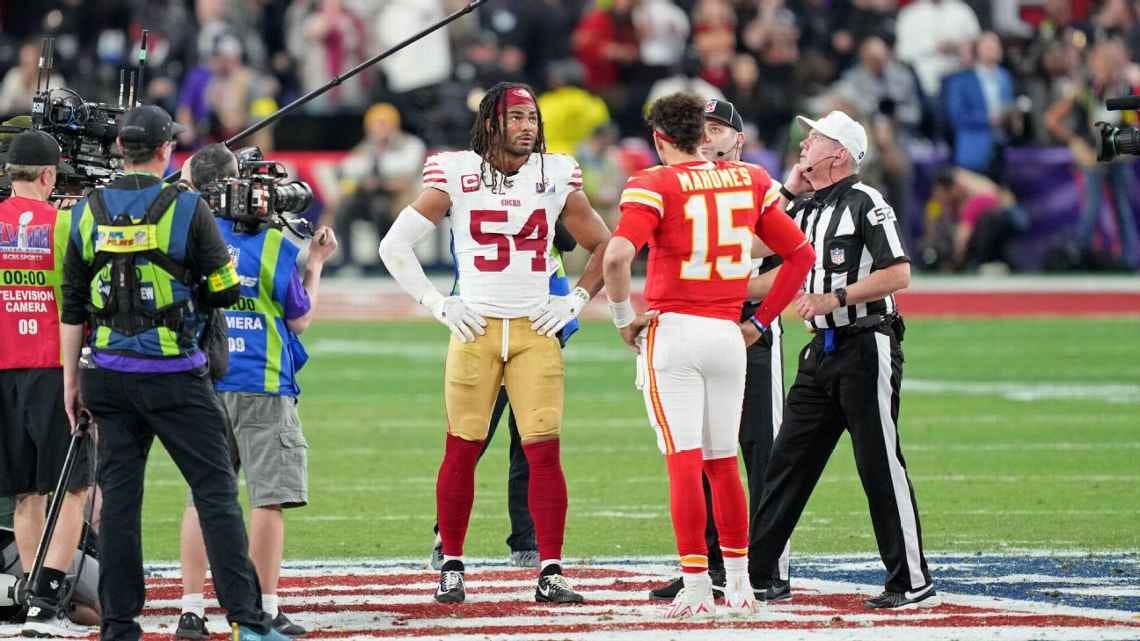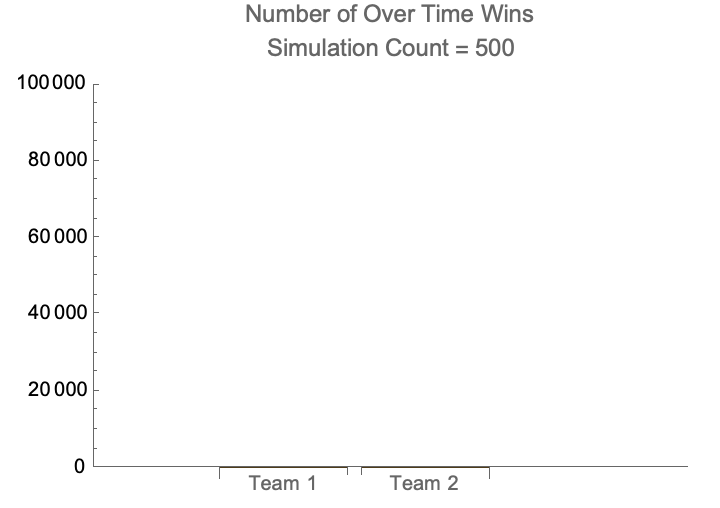Did the 49ers Make the Right Call?
A look back at the Super Bowl overtime outcome
“They wanted it!”
That’s what Patrick Mahomes was quoted saying as he ran back to the sideline after returning from the overtime coin toss during the Super Bowl.
The reason that he was so excited was that his team, the Chiefs, had lost the coin toss to the 49ers, but the 49ers elected to receive the ball anyways.
Why was this so seemingly controversial?
In years past, the NFL overtime rules were essentially a sudden death match. The first team to score would win, regardless of whether the second team had a possession or not. Not getting the ball first, often meant a guaranteed loss. However, those rules changed recently and each team is now guaranteed to have at least one possession before entering into a sudden death match.
So the 49ers won the toss and elected to take the ball first (and their players later acknowledged not knowing the overtime rules had changed) and many people think that decision was a big reason they lost.
What advantage did the Chiefs seemingly gain by going second?
Well, many people believe that by going second, you know what your opponent did and therefore you have the advantage of knowing what you need to accomplish in order to win the game. As an example, say the first team (we’ll call it Team 1) ends up getting a field goal instead of a touchdown. Well now the team going second knows that a touchdown can win the game outright. Or, say Team 1 ends up with a touchdown, then Team 2 now knows exactly what they must score to stay in the game. They will no longer be punting or going for field goals on 4th down. Finally, say Team 1 doesn’t score at all, then Team 2 knows all they need is a field goal to win.
It would certainly seem like going second would be a pretty big advantage right? Well maybe, but maybe not….
If the two teams make it past the opening possessions still tied, then Team 1 will get the ball back. At this point overtime becomes sudden death. This means Team 1 needs only a field goal and they will win without Team 2 ever getting the ball again.
The 49ers head coach Kyle Shanahan faced a lot of criticism over his team electing to get the ball first, but was that criticism justified? This has been a hot topic in the last few weeks following the Super Bowl and was even related to the puzzle of the week from The Fiddler on the Proof Substack.
What does a quick statistical analysis tell us?
These overtime scenarios in sports, lend themselves quite well to statistics. Anything can happen in sports, but with a computer model accounting for various inputs, we can run a large number of simulations and understand what the distribution in potential outcomes may look like.
Each of these teams have analytics departments, and according to reports, they were consulted ahead of the coin toss to try and inform their head coaches of the best decisions for their team. It was reported that the 49ers analytics department recommended they take the ball first and the Chiefs analytics department recommended they get the ball second if they won the toss.
Both teams got exactly what they thought would favor their chances of winning and so it’s interesting that they each had a different strategy. This tells us that there could be quite a lot of complexity in what goes into these models.
Nonetheless, what happens if we try and simulate this ourselves? We could make the following simplified assumptions:
Team 1 will go first and for simplicity we assume that their likelihood of not scoring, getting a field goal, or getting a touchdown were all equal (33.3% chance of each outcome).
Team 2 will go second, but depending on Team 1’s outcome, they either have the same 33.3% chance of scoring, getting a field goal, or getting at touchdown. BUT, if they know that Team 1 got a touchdown, they will have to get one themselves. This means their options would shift to only 2: not scoring and scoring a touchdown. For simplicity we could assume each of those two options would have a 50% chance of happening (which is likely not right, but we’ll go with it here).
Finally, if the teams remain tied after the first round, then they go to a sudden death in which Team 1 gets the ball first still and the first team to score any points (field goal or touchdown wins).
The results of such a simulation are shown below and what we see is that Team 1 has the advantage! In fact, they have around a 57% chance of winning compared to Team 2’s 43%.
There’s plenty of holes to poke in the assumptions used to produce this model, but none of them would be considered so obviously wrong that it could flip these results and Team 2 would clearly become the overwhelming favorite to win based on going second.
In fact, a closer look at this analysis reveals that the main driver behind Team 1 winning more often comes down to the sudden death after the first two possessions. There’s always a decent chance that Team 1 and Team 2 make it through the first possession tied and if that occurs, the next Team that scores wins. Since Team 1 gets to go first, this gives them the advantage.
What about other opinions
ESPN provided a great list of other opinions about why the 49ers messed up included other things to consider when looking at the “right” decision during an overtime coin toss.
Argument #1: It’s the same as college!
"We already know what to do from college football. Go second so you can know what you need. Problem solved."
Argument No. 2: You're not getting the ball back!
"There's no chance of getting the ball for a third possession, because whichever team goes second will just go for two or make whatever decision it needs to make to avoid letting the opposing team get the ball back."
Argument No. 3: But Mahomes is on the other side!
"Shanahan screwed up because he gave the ball to Mahomes with the chance to win the game with a touchdown."
Argument No. 4: Shanahan messed up on his overtime drive!
"The 49ers should have gone for it on fourth-and-4 instead of kicking a field goal."
You can check out their article here for more information on each of these points, but I would consider all of them to be valid and part of why this is such a difficult question to answer.
My take
Personally, I like to see the analytics on this stuff and I’m willing to bet that each of these teams had pretty sophisticated models backing up their decisions on what to do. Just because it worked out well for one, doesn’t mean the other was “wrong”. That’s what sports is all about. There’s a probability associated with any outcome and the odds may be in favor for a particular outcome, but that doesn’t mean it’s always going to go your way.
Doing a quick search online, and there’s plenty of other analysis that are more sophisticated than mine, but most seem to indicate that getting the ball first or second is not as big of a deal as many of the people criticizing the 49ers would make it seem.




